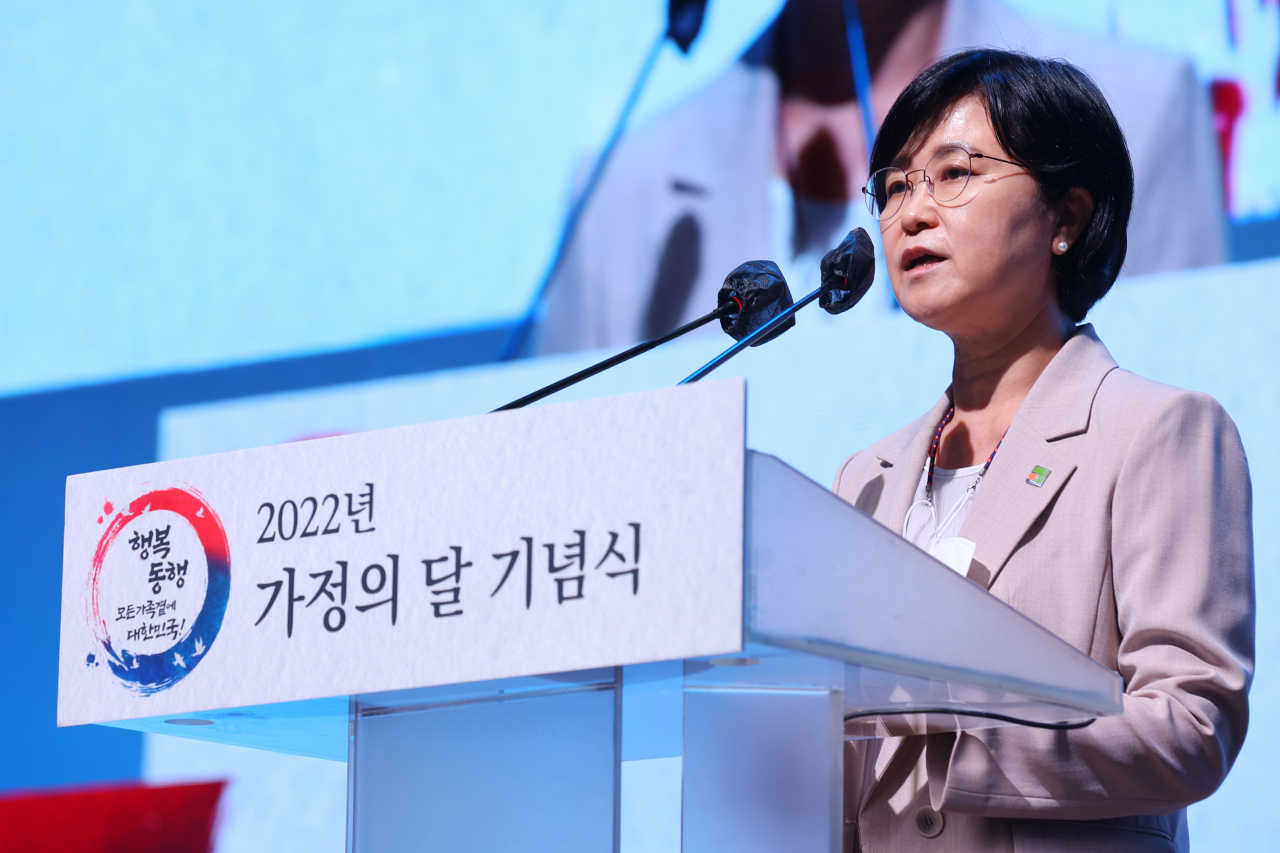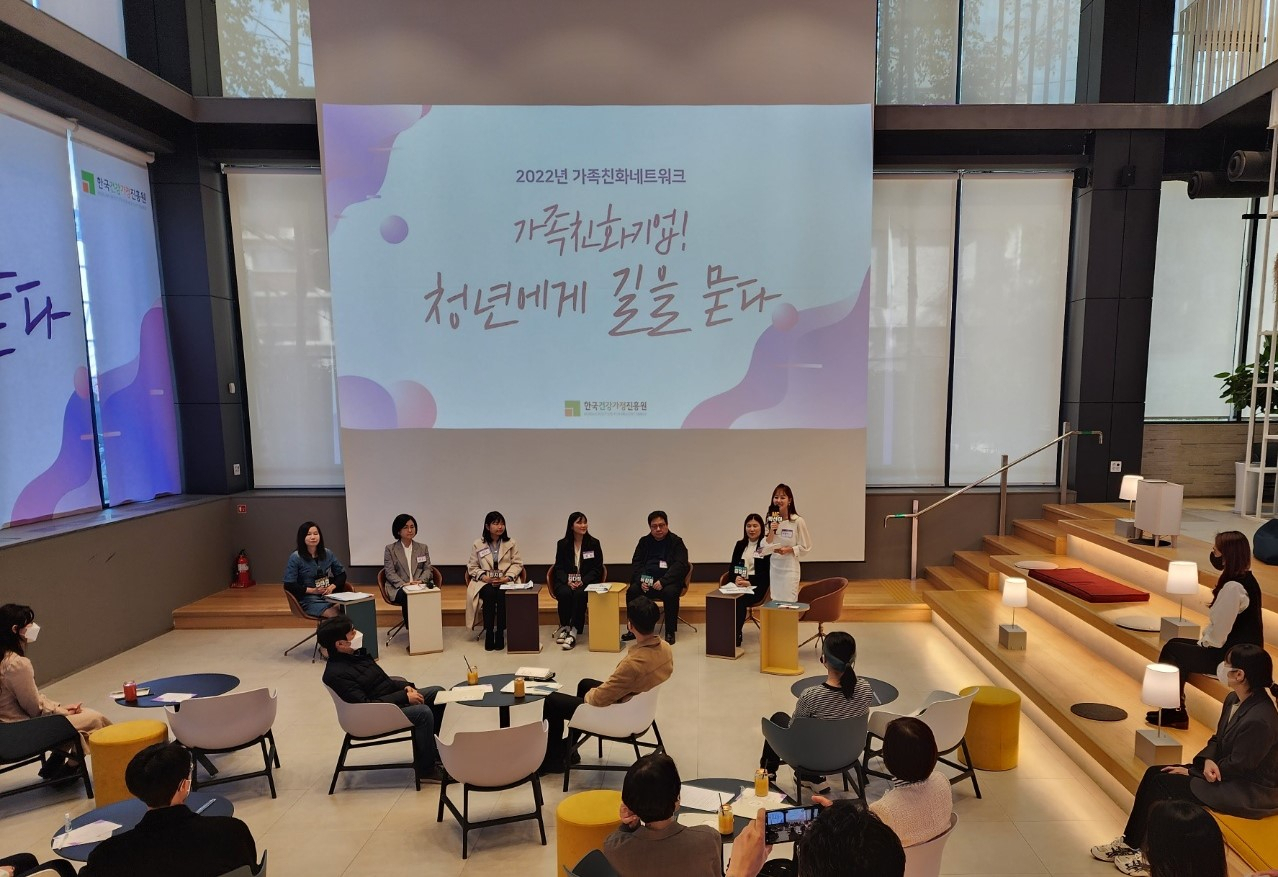[K-Wellness] ‘Happy families make a healthy society’
Korean Institute for Healthy Family promises tight-knit family policies without blind spots
By Korea HeraldPublished : Nov. 16, 2022 - 14:27

The Korean Institute for Healthy Family, an affiliated organization of the Ministry of Gender Equality and Family, was established in 2015 to realize a nation where all families are happy by providing an efficient and systematic service for families. “The types of families in our society have diversified with the rapidly changing social environment. As the nation’s only institute specializing in family policies, we will strive to implement tight-knit policies without blind sports,” said Kim Geum-ok, chairperson of the Korean Institute for Healthy Family.
Kim brings a diverse range of experience to the institute. She has served as a permanent representative at Korea Women’s Association United and as a presidential secretary for civil society. She brings valuable insights, experiences and skills to the position. Through active communication with staff, she seeks to maximize work efficiency and build strong bonds. Given the characteristics of the institute, which handles family policy, active communication with staff is essential. The institute will work hard to contribute to the happiness of families.
What is the institute’s main role and function?
We carry out awareness raising projects, education and campaigns to achieve a society that embraces all types of families and promotes a family-friendly work culture. We make efforts to alleviate gaps in family care and support vulnerable families. We also provide support services to implement child support payments for single parents who are not receiving child support from their former spouses. We operate a family consultation hotline (1644-6621) offering counseling services 24 hours a day, 365 days a year. We also operate the Danuri Call Center (1577-1366) delivering consultations in 13 languages to support multicultural families.
The institute’s campaign introducing family-related services in sign language has been gaining attention.
It is a family campaign which leaves no one behind. It was created to improve the accessibility of family service information among families with disabilities, as it is hard for them to get information solely through audio and subtitles. With the increasing number of multicultural families, we are not just providing information in Korean sign language, but also international sign language along with subtitles. In the video on our campaign website, our staff appear in person to introduce family services, together with a professional sign language interpreter.
Can you tell us about the private babysitter education pilot project’s progress and future plans?
The education program for private babysitters has been in progress since October for 104 trainees in four education agencies for child care providers. In Seoul, the education agencies are in Gwanak-gu, Songpa-gu and the Gangbuk Women Resources Development Center. One agency is located at the Seongnam YMCA in Gyeonggi Province. Those who complete the education program will be notified with recruitment schedules in 227 child care providers nationwide. The babysitters’ education and experience will be managed in a database, and they will be exempted from training courses in the future.”
The number of vulnerable families are increasing due to the COVID-19 pandemic. The government’s support for and interest in these families need to increase.
Our institute provides various services to improve the stability and quality of families’ lives, and to help families establish themselves as happy partners. The government aims to make a society which walks together with the people and leaves no one behind. This year, the number of people who lost their homes and jobs not only due to COVID-19, but also because of disasters including forest fires and floods, is growing. Since the pandemic, the education and livelihood gap has widened for 74 percent of multicultural families. The Korean Institute for Healthy Family seeks to secure financial resources through cooperation with relevant organizations and provide practical family services that people need. We are making efforts to deliver an emergency relief fund as well as a goods and education program for children of multicultural families through collaboration with the Yuhan Foundation, Posco Group, GS Retail, KB Financial Group and Hyundai Heavy Industries Group 1% Nanum Foundation.

Can you tell us about the institute’s aspiration to implement policies for healthy and happy families?
As I have said earlier, our institute makes efforts to provide customized family services and create a societal environment that embraces diverse types of families. We will join with all families as a partner for happiness. We will listen to the people’s voices on the ground and strengthen our communication, so that we can improve our responses to change and provide tangible high quality family services.
By Yang Jung-won (7toy@heraldcorp.com)
-
Articles by Korea Herald












![[Today’s K-pop] BTS pop-up event to come to Seoul](http://res.heraldm.com/phpwas/restmb_idxmake.php?idx=644&simg=/content/image/2024/04/17/20240417050734_0.jpg&u=)





![[KH Explains] Hyundai's full hybrid edge to pay off amid slow transition to pure EVs](http://res.heraldm.com/phpwas/restmb_idxmake.php?idx=652&simg=/content/image/2024/04/18/20240418050645_0.jpg&u=20240419100350)

